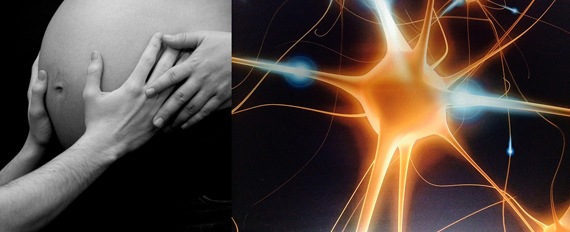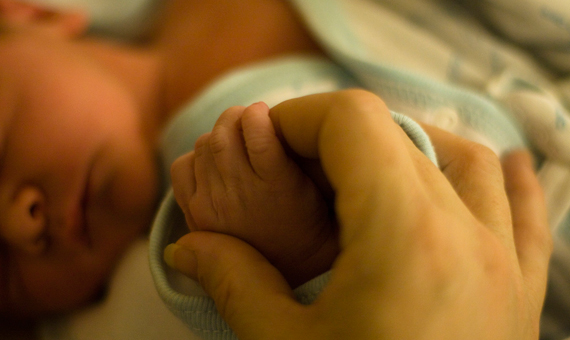The arrival of a new human being into the world is accompanied by significant changes in the brain of its mother. Among other things, during pregnancy the functioning of the maternal visual system improves, the mother’s sensitivity to the baby’s odors and sounds is heightened, and activity increases in the hippocampus, thus boosting her learning capacity and memory.
Although some years ago it was found that pregnancy coincides with a reversible reduction in the size of the maternal brain, this change not only does not imply a decline in the cognitive abilities of mothers, but rather the opposite. Research increasingly suggests that the neuronal changes experienced by the thinking organ during pregnancy increase a mother’s abilities.
For Craig Kinsley, a neuroscientist at the University of Richmond (USA), the curiosity to understand the brain changes brought about by motherhood was awakened after the arrival of his first child and observing how certain abilities in his wife were strengthened. While studying pregnant rats in his laboratory to obtain the proof of what he had already guessed, he found that in the transition to motherhood, neuronal activity increases. “Mothers have to drastically refocus their activities; they must adapt to multiple new demands from their offspring so as not to risk wasting the big metabolic and genetic investment that pregnancy involves,” concluded Kinsley. In short, it is a matter of pure biological “profitability”. This also explains why pregnancy hormones increase learning ability and memory.

A few years later, Kinsley also discovered that pregnant female rats are better hunters than their virginal companions. Despite the weight gain that comes from them being pregnant, rodents capture their prey faster when they are carrying their offspring inside, needing only 50 seconds versus the 270 seconds it takes those that are not mothers. And this is due, in part, to improvements in the operation of their visual system; literally, mothers can see better. To this we add that they behave with more courage and face difficult situations better. Motherhood, says the neuroscientist, produces a reduction in the stress hormone and reduces fear and anxiety in the amygdala.
In fact, the amygdala, an almond-shaped structure involved in emotional responses, is one of the key targets of the brain changes brought on by maternity. Scientists have found that its neurons fire more intensely when the mother is looking at a picture of her own baby than when she is given a photo of an unknown newborn. And the more intense the response of this brain structure is to seeing the face of her child, the less the anxiety shown by the mother and the more positive are her social responses. This is attributed to this brain region being very sensitive to the effects of hormones such as oxytocin —the so-called “love hormone”— which increases dramatically during pregnancy and the postpartum period. The more a mother is involved in the care of her newborn, the more oxytocin is secreted, and the more oxytocin there is, the more receptive the brain of a mother is to the cries of her baby. It is a chain effect.
Certain areas of the cerebral cortex —such as the dorsal anterior cingulate or the orbitofrontal and prefrontal lateral areas of the cortex— are also stimulated by the action of oxytocin and vasopressin in mothers. And, interestingly, these are the same areas whose activity is triggered when we fall in love, indicating that the brain areas for maternal love and romantic love coincide.

And the list of changes prompted by motherhood does not end there. The first time a mother smells her child, the reward circuitry is activated in the center of the brain —the caudate nucleus—, so that the baby’s odor acts somewhat like an addictive drug, releasing dopamine in abundance. From that moment on, the smell of any infant will stimulate this area of the brain, something that does not happen in females who have never given birth. To this is added the discovery of British scientists at the University of Bristol, who have shown that in the later stages of pregnancy, women process the emotions of human faces better, and are especially vigilant towards emotional signs of aggression or threat.
As if that were not enough, recent research suggests that, far from adversely affecting a woman’s cognitive abilities, as had long been thought, having children actually increases her brainpower. Scientists at Yale University have detected an increase in the volume of gray matter in the maternal brain immediately following the birth of a child, especially in the hypothalamus, the amygdala, the parietal lobe and the prefrontal cortex, being the areas responsible for memory, emotions, reasoning, motivation and sensory perception. Meanwhile, Laura Glynn, of Chapman University in California, has found evidence that mothers of owl monkeys are better strategic planning than those primates without children, and now the researchers are looking at whether this also applies to humans.
Comments on this publication